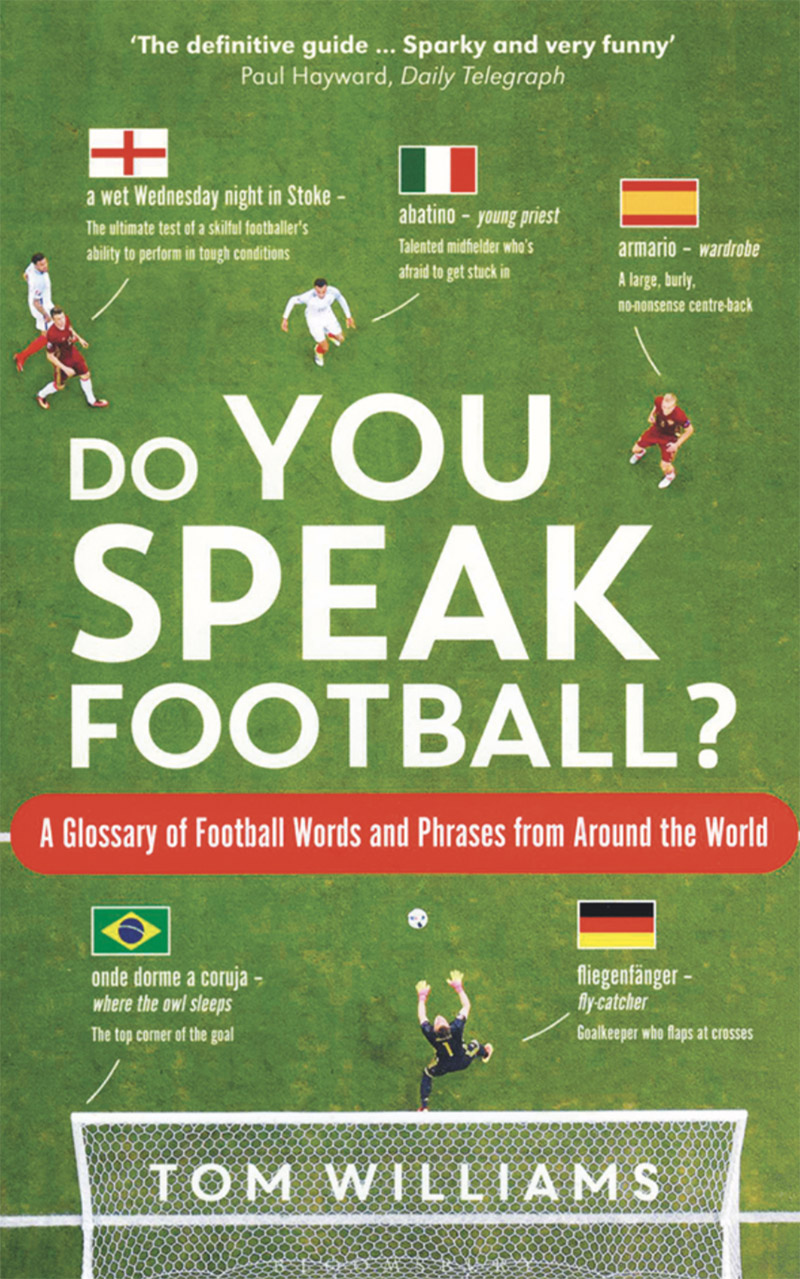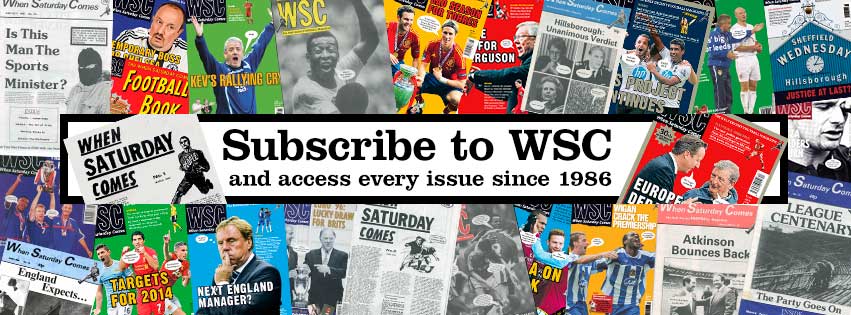England is not the only country to have phrases relating to the game, and many across the planet have fascinating origins
11 June ~ It’s one of the conceits of human nature to imagine that our shared colloquial language, a mystery to foreigners and their phrasebooks, is proof of our exceptional native wit. What other country could devise as crafty and indecipherable a code as Cockney rhyming slang? And when it comes to football, the game we gave the world with little thanks in return, what other nation could match our rich trove of phraseology – the onion bag, the hospital ball, the nutmeg, the reducer, phrases which would reduce overseas friends to a puzzled “Que?”
Tom Williams’ Do You Speak Football? A Glossary of Football Words and Phrases from Around the World is an excellent and exhaustive corrective to this mode of thinking. Believe it or not, countries across the globe have their own, singular set of vivid terms for all aspects of the game, coined by commentators, managers, players, fans or god knows who, all born out of love, ironic affection and exasperation at the game Pelé once described in a trite phrase that doesn’t deserve to be so much more renowned than some of the Shakespearian wealth of verbal nuggets Williams unearths.
Do You Speak Football? ranges across the continents, from South America to Africa, and its detailed entries amount overall to a potted history of world football, how it has connected in varying parts of the world and the idiosyncratic forces that have shaped it, often reflected in the language supporters use to describe it. So, for kick-offs, we learn in a short essay how the Argentinian phrase anti-futbol derives from the humiliation the national team suffered at the 1958 World Cup. This provoked a transition from idealism to a more cynical approach to the game, embodied in the brutal Estudiantes team of the 1960s. In Brazil, the drible da vaca or “cow dribble” (knocking the ball past an opponent on one side then collecting it on the other), derived from the experience of playing on scrubland liable to be shared with obstructive livestock. It’s an example of how the traditional skillset of Brazilian football was forged as a result of, not despite, adverse playing conditions for kids growing up in poverty.
Phrases often reflect national sensibilities; in Belgium, whose most famous monument is a statue of a small boy urinating, a weak shot that dribbles miserably short of goal is known as a pisballetje or “pee shot”. Moreover, despite statistical claims made that they are the happiest nation in the world, the Danish contributions to football’s world glossary are morbidly shot through with gloom, humiliation and regret. A ballooned penalty is called a “Preben Elkjaer”, after the player responsible for the one which ejected the Danes from Euro 84, a game in which his arse was exposed to the world, following an incident in which he ripped his shorts. “Jesper Olsen” also features, for his calamitous backpass that triggered Denmark’s exit from the 1986 World Cup against Spain.
The English examples will be familiar to domestic readers but feel conspicuously inelegant compared to some of the international entries – “hoof”, “box to box”, “bread and butter”, “afters” – but trust Barry Davies, with his mix of cracked exuberance and schoolmasterly crust, to allude to the Schoolboys’ Own Library rather than the more common Roy of the Rovers, when wildly celebrating Paul Gascoigne’s 1991 FA Cup semi-final free-kick.
The synonyms for “nutmeg” across the world tell varying tales of international psyches. In Germany, it is known as a beinschuss or “leg shot”, implying a bullet-related trauma. Emasculation is to the fore in Portugal where the manoeuvre is referred to as cueca (undies), to which the unfortunate defender is stripped, or suknjica (skirt) in Bosnia, the garment of shame the nutmegged party is deemed metaphorically to be wearing. In Vietnam, the term is xau kim (threading the needle). As Williams put it, this focuses on “the skill of the nutmegger rather than the shame of the nutmegee”.
If a phrase is to be coined for this wonderful read it might be “toilet book” – one which is to be dipped into as and when one is conducting business thereon; a literary purpose not to be sniffed at. This is a wonderful, endlessly delightful read. David Stubbs
Do You Speak Football by Tom Williams is out now
This article first appeared in WSC 375, May 2018. Subscribers get free access to the complete WSC digital archive – you can find out more details here

